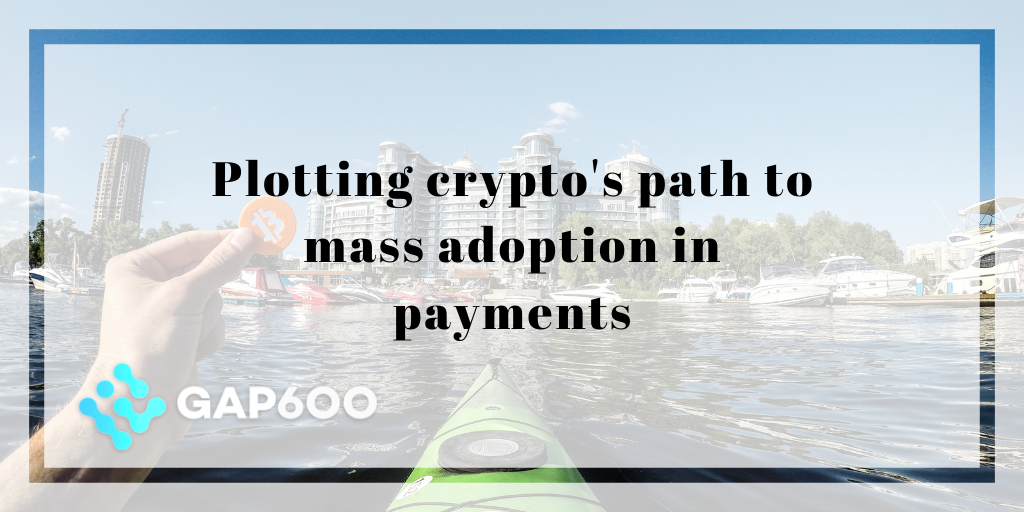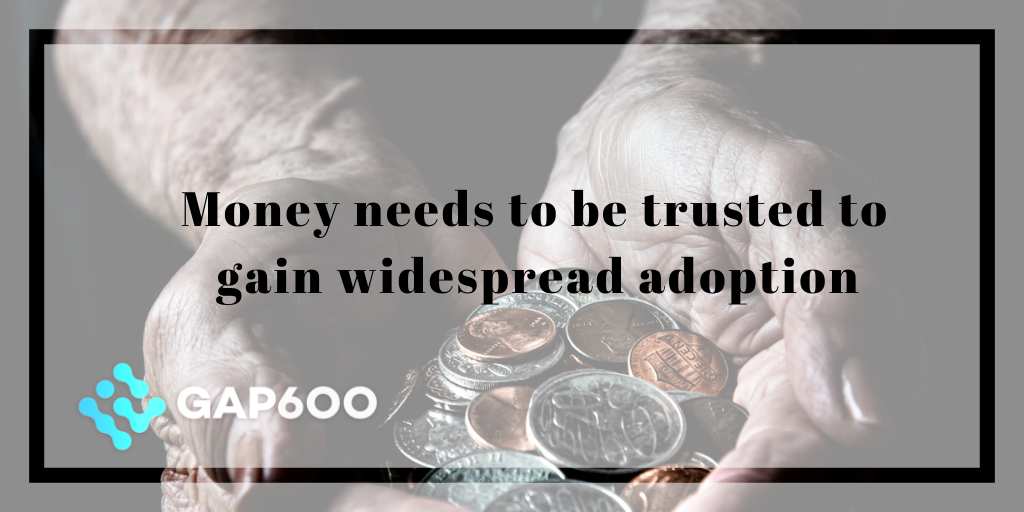
Crypto’s primary use case remains speculation, with recent developments enabling investors to leverage and earn interest around their viewpoint of price developments. Another compelling use case and immense value lies in its application as a means of exchange or payment method.
While cryptocurrency transactions have gained traction in the gaming and gambling sectors, adoption and usage in consumer and merchant payments lags.
However, this prevailing digital payment status quo does not stem from a lack of functionality, capacity or technological capabilities. The fact is that cryptocurrency can already meet consumer and business payment needs – the capacity to support fast, secure and reliable crypto payments already exists.

It is a lack of widespread adoption and usage that currently constrains crypto’s rise as a popular and pervasive payment method, partly because developments and advancements in fiat-based digital payments have diluted the crypto payment value proposition.
Additionally, there is no compelling reason to use crypto as opposed to fiat. In industries where there is a compelling reason, like the online gaming sector, adoption has shown significant strength. But before the value drivers of a higher quality form of money can gain relevance among a mainstream user base, the money needs to be trusted and ubiquitous.
Cryptocurrency already offers many benefits and greater value over fiat currency because it is a higher quality, non-inflationary form of money that gives users complete control over their transactions. Transacting with cryptos also globally accepted, and fast when transacting with scalable networks like Bitcoin SV..

Despite these benefits, mass adoption has not taken off in development around the Bitcoin payment ecosystem and has stiff competition from developers of fiat-based applications, who have and are responding to the disruptive industry threat posed by cryptocurrency. In short given that money is a tool, there is no compelling reason to move across and start using Bitcoin as a means of exchange.
Before even arriving at the point where we can choose Bitcoin as a form of payments, we need to have it and trust it. Only then does the question of user experience, high quality of money, self custody and borderless transacting become relevant. Essentially, only at that point will Bitcoin be ready to compete in payments and the global financial system
Ultimately, consumers don’t really care what technology they use to pay. Money, in whatever form, is a means of exchange – it’s a tool and a means to an end. As long as we are comfortable with the mechanism, it is convenient and frictionless, and we trust the system, people will willingly use one form of payment over another.

The route to establish Bitcoin as a ubiquitous and trusted form of payment is via the blockchain, with enterprise services playing a major role. Embracing blockchain technologies at an enterprise level to address specific challenges and pain-points would create and entrench trust and familiarity with these services and solutions to ultimately drive adoption.
In this scenario, the technology behind the service becomes irrelevant, as long as it works and integrates seamlessly into daily life. A great example is the Linux operating system. Most people don’t know they use Linux when, in fact, most popular online services like Google, Facebook and Twitter run off that technology.
Bitcoin SV (BSV) is the ideal candidate to build out these capabilities. It offers various strategic and sustainable advantages over other blockchain projects because it is the original design of Bitcoin, which birthed the whole industry – BSV is Turing complete with computing language enabled, it is non-custodial in nature, has a stable protocol, is massively scalable, supports micropayments, and is non-inflationary.

Because BSV leverages the original Bitcoin design, it offers a proven stable and massively scalable network that can truly support global enterprise usage. The most compelling route to BSV adoption and use as a payment method or means of exchange is via blockchain services or the global ledger.
In summary, our view is that the route to mass BSV adoption, and realizing the promise of greater economic freedom that this brings, is via blockchain services, rather than an incremental route of speculation and converting one merchant at a time.
Building blockchain solutions that add value as technological platforms to a range of services within enterprises and growing companies will engrain Bitcoin as an everyday tool, which will make end-users comfortable with using it, just like we view and use email technology today.
From this point, the jump to mass adoption of this technology as a tool for transacting with money becomes obvious and easy. When this happens, the world will benefit from numerous other added advantages, such as transparent transactions and non-inflationary peer-to-peer transactions for global money transfer. When these services come into play, they will further naturally accelerate mass adoption.
Check out below our CEO discusses GAP600 and the route to mass adoption for payments via blockchain services on a panel at Coingeek Conference Live Oct 2020.

Daniel Lipshitz
CEO GAP600 Ltd




